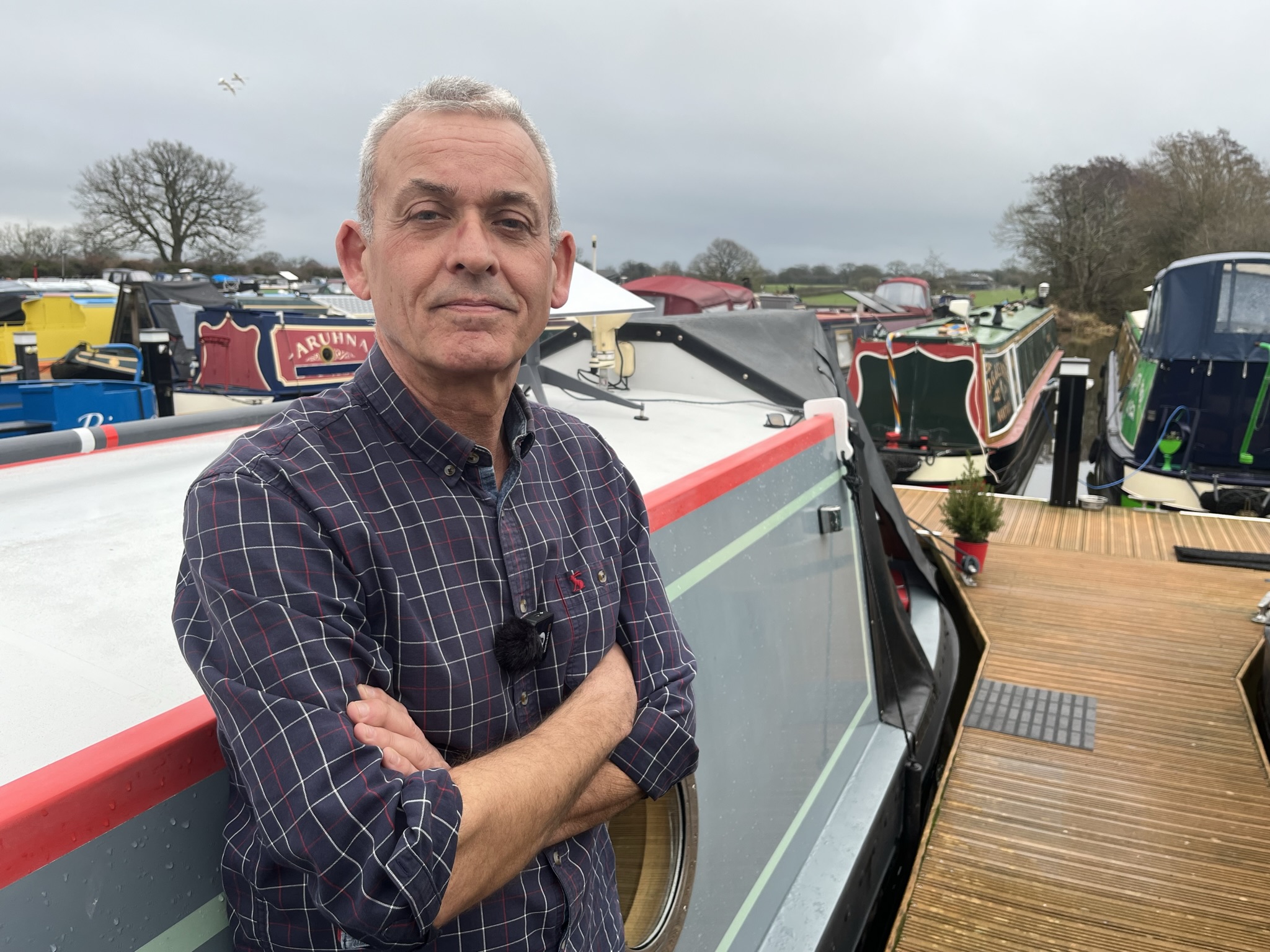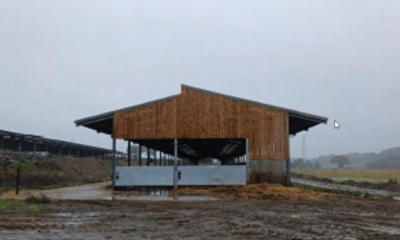Health
No improvement in cancer waiting times despite Welsh Govt plan

TWO years after the Welsh Government unveiled its ambitious plan to overhaul cancer care and reduce waiting times, the latest data reveals a stark reality: there has been no significant improvement.
New figures from NHS Wales indicate that nearly half of cancer patients are still waiting over 62 days to begin treatment. This troubling statistic underscores the ongoing crisis in Welsh cancer care, despite the dedicated efforts of healthcare professionals.
Glenn Page, Policy and Public Affairs Manager for Macmillan Cancer Support, expressed his concern, stating: “Around half of people diagnosed with cancer are having to wait more than 62 days to start treatment. There are real people’s lives behind these unacceptable figures. At Macmillan, we hear every day from patients and their loved ones about the unbearable anxiety and worry these delays cause, on top of everything else a diagnosis brings.”

The persistent delays in cancer treatment have significant implications. Survival rates in Wales lag behind those in other countries by as much as 20 years, a disparity that reflects the severe strain on NHS cancer services. Despite minor improvements from the previous month, the performance remains worse than the same period in three of the past four years.
In May 2024, over 800 people in Wales waited more than 62 days to start cancer treatment, accounting for 45% of all patients who began treatment that month. This is a slight improvement from the previous month’s 53.8%, yet still highlights the systemic issues within the NHS.
Particularly concerning are the waiting times for specific cancer types. Only 33.3% of urological cancer patients and 34.3% of head and neck cancer patients started treatment within the target time in May 2024. Macmillan’s analysis further reveals that survival rates for colon and rectal cancer in women in Wales are only now reaching the levels seen in Sweden and Norway in the early 2000s.
Macmillan Cancer Support is calling for urgent action from the Welsh Government. Page urges the Cabinet Secretary for Health and Social Care to update the nation on the progress towards meeting the commitments made to improve cancer services and reduce waiting times. “We need assurance that tangible steps are being taken to ensure people living with cancer receive the timely care and support they need,” Page emphasised.
The latest NHS statistics have drawn criticism from the opposition. Commenting on the figures, Sam Rowlands MS, Welsh Conservative Shadow Health Minister, said: “These abysmal statistics show Labour’s performance on health continues to get worse here in Wales. The Labour Welsh Government have consistently missed their targets and this is not just the outgoing First Minister’s legacy, but the result of 25 years of Labour mismanaging the Welsh NHS. The Welsh Conservatives would enact a substantial workforce plan to empower primary care services and would fully resource the Welsh NHS with every penny received for health, as opposed to Labour’s decision to squander these funds on creating more politicians.”
In response, a Welsh Government spokesperson acknowledged the challenges but highlighted the efforts and progress being made: “Our incredibly hard-working NHS staff continue to provide life-saving and life-changing care in the face of incredible demand for its services. More than 14,250 people were told the good news that they do not have cancer in May – an incredible number. It is pleasing to see performance improved against the 62-day target too.
“The number of immediately life-threatening (red) 999 calls to the ambulance service made each day was the second highest on record, and the proportion of these calls was the highest recorded. This level of demand – a 28% increase compared to the same month in 2023 – means it is increasingly tough to meet the target response times, but even so, there was an improvement in June and almost eight out of 10 calls received a response within 15 minutes.
“Performance against the 12-hour target for emergency departments improved slightly in June and the majority of people were discharged, admitted or transferred in less than two hours and 50 minutes. The number of emergency admissions decreased by 5.6% this month – a further indication that work through our national Six Goals programme to care for people closer to home is having an impact.”
The spokesperson admitted the overall disappointment in NHS performance figures: “The waiting list has grown again and, after 24 months of consecutive falls, the number of people waiting more than two years for treatment has increased for the second month in a row. The Health Secretary has made it clear to health boards that she expects to see progress – and sustained progress – to reduce long waits and waiting times for treatments. She will be making it clear to the leadership of health boards today that the situation is not acceptable and must improve.”
In closing, the spokesperson highlighted the scale of the challenge: “There is still a way to go to reduce the backlog, which built up during the pandemic. But the NHS continues to deliver an enormous amount of activity for a population of 3 million people – since April 2022, more than 2.5 million patient pathways have been closed at an average of 103,000 a month.”
Key Facts:
- In May 2024, more than 800 people in Wales waited over 62 days to start cancer treatment.
- Performance improved slightly from the previous month but remains worse compared to the same period in three of the past four years.
- 2023 was the worst year on record for cancer waiting times in Wales.
- The national cancer waiting times target in Wales has never been met since its introduction.
- For some cancers, such as urological and head and neck cancers, only around one-third of patients started treatment on time in May 2024.
- Survival rates for colon and rectal cancer in women in Wales are just now reaching levels achieved by Sweden and Norway in the early 2000s.
Health
NHS Wales app gives tutor fresh start after mental health struggles

A TUTOR who struggled with depression and anxiety found “life-changing” online support through a free NHS Wales service.
Former maths teacher Iain Messenger had experienced anxiety for decades but said looming retirement and the collapse of his marriage were the final straw.

He called the NHS 111 press 2 mental health service after experiencing crippling panic attacks, low self-esteem and ‘dark thoughts’.
He was signposted to SilverCloud Wales, an online platform offering guided self-help programmes for mental health and wellbeing.
Speaking out to coincide with Time to Talk Day – the nation’s biggest mental health conversation – 58-year-old Iain said: “The sense of hopelessness dissipated almost immediately.
“I realised I wasn’t the only one – other people were dealing with the exact same problems and feelings. I no longer felt alone.”
The former teacher, who lives near Welshpool, decided in 2024 to quit the classroom and focus on private tutoring.
But handing in his notice coincided with a marital breakdown, and he began each day of his final months in work battling panic attacks.
“I was struggling with my close relationships, and basic decision-making always turned into a drama,” Iain explained.
“I felt useless, wandering about not able to focus on anything. I couldn’t even read a book or watch the TV.
“I had some pretty dark thoughts – that I was a disaster, and no use to my family. I was in a real mess.”
Iain said seeking help through 111 press 2 in June last year was a ‘huge’ and ‘humbling’ step.
“It’s a bloke thing – you put on a front and pretend you’re OK,” he explained. “And I was typical in that regard, I wouldn’t really speak to anybody.
“You feel like the only person in the world who can’t do life, but then when you phone 111 press 2 and they go through the list of questions, it’s instantly relatable. You realise you’re not the first person to be there.”
Iain was referred for counselling but was advised to try SilverCloud while he waited for an appointment.
The platform features online courses based on cognitive behavioural therapy for issues including depression, anxiety, poor sleep and stress.
Access is free to anyone in Wales aged 16 or over, without seeing a GP.
“I was sceptical at first,” Iain admitted. “I just couldn’t see how an online platform was going to work, I thought I needed someone to press the right buttons and fix me.
“But going through the programme, there were scenarios that described exactly how I was feeling. I identified with so much of what was being said.
“And I was now actively doing something to get well. Just having a plan in place meant I went almost immediately from hopeless to hopeful.”
SilverCloud Wales is managed by NHS Wales’ Online CBT Service, based at Powys Teaching Health Board.
Over 41,000 people have accessed the Wales-wide service since it piloted in Powys in 2018.
As well as programmes for adults, the platform has courses for students and young people, and for parents supporting children and teens with anxiety.
SilverCloud’s three most popular programmes – addressing anxiety and depression – are also available in Welsh.
Online CBT Service project manager Fionnuala Clayton said: “Time to Talk Day reminds us how important it is to speak up when you’re struggling – it’s often the first step to feeling better.
“But we know that isn’t always easy, and that’s where SilverCloud can help. It offers flexible, confidential support you can access straight away, without waiting for a GP appointment. We’re delighted to see the difference it’s made to Iain’s life.”
Iain added: “I’m still using the lessons I picked up through SilverCloud, and they’re becoming more embedded in my thinking.
“I’m grateful – on a daily basis – for the things I learned. It’s been lifechanging.”
Sign up to SilverCloud at: nhswales.silvercloudhealth.com/signup
Cover image:
Former maths teacher: Iain Messenger
Health
Charity urges end to detaining autistic people in mental health hospitals

Welsh campaigners say new law could free dozens from inappropriate units and save up to £14m a year
THE NATIONAL AUTISTIC SOCIETY CYMRU is urging the next Welsh Government to introduce an Autism and Learning Disability Bill to prevent autistic people being unnecessarily detained in mental health hospitals, warning the current system is both harmful and costly.
Around 140 autistic people and people with a learning disability from Wales are currently being held in mental health units, despite campaigners saying such settings are unsuitable for most.
Families and advocates report repeated concerns including abuse, overmedication, excessive restraint and solitary confinement.
The charity says many people remain detained for years rather than months, with the average stay approaching five years. Placements are often far from home, leaving relatives facing long journeys to visit loved ones and making it harder to maintain family support.
Campaigners argue that failures in existing laws and weak duties on public bodies mean families struggle to challenge decisions or secure appropriate community care.
Community care cheaper
The organisation says keeping people in hospital is also significantly more expensive than supporting them locally.
Community support can cost from around £13,000 a year for those living with friends or family, rising to about £80,000 for supported accommodation. By contrast, the average inpatient placement costs about £214,000 per person each year.
Even the most intensive community packages are estimated to be between £130,000 and £200,000 cheaper annually than hospital care.
If the number of people in hospital units were halved, the charity says Wales could save between £9 million and £14 million a year.
However, it argues those savings will not be realised without new legislation to reform how services are planned and delivered.
‘Stolen lives’
Through its Stolen Lives campaign, families have shared accounts of relatives who they believe could have remained in the community with the right support, but were instead sectioned when local services broke down.
The charity says hospital should be a last resort, not the default when care systems fail.
It is calling for a dedicated Autism and Learning Disability Act that would:
– strengthen legal rights to support
– improve coordination between services
– increase accountability when systems fail
James Radcliffe, External Affairs Manager for the charity in Wales, said: “The next Welsh government has the opportunity to end the unnecessary detention of autistic people. Currently existing laws are failing to protect autistic people.
“Families are unable to challenge services to allow them to bring their loved ones home.
“An Autism and Learning Disability Bill could end this injustice and end this human rights failure. It would strengthen the protections and rights for autistic people and people with a learning disability and it would also save the taxpayer millions.”
Health
The growing popularity of overseas medical care

With waiting lists ever increasing and appointments seemingly booked up forever, more and more people are seeking alternative methods to get the medical care they need. While going private is an option for some, for others, the costs are simply too high, treatments are not specialised enough, or waiting lists remain lengthy. This is why many people are starting to go abroad for their treatment needs. So, with that in mind, let’s explore why overseas medical care has grown in popularity.
Shorter wait times
In 2024, more than 500,000 Britons chose to get treated abroad to avoid lengthy wait times on the NHS, more than double compared to numbers reported in 2021. With waiting lists continuously on the rise, it’s becoming increasingly difficult for people to get the treatment they need when they need it. The result is more and more people heading overseas to receive the right medical care.
Lower costs
The expense of going private in the UK versus going private abroad is significant. For example a hip replacement in the UK costs around £12,000 to £18,000 privately, but will cost around £1,600 to £5,000 in India. These reduced expenses make medical care more accessible to those on lower incomes, increasing the appeal of overseas medical care.
Specialised treatments or experimental therapies
Some countries have dedicated more time and effort into certain health conditions than others. For example many people seek epilepsy treatment in Germany, thanks to the country’s reputation for advanced investment into the condition.
Some tests, treatments, and experimental therapies aren’t available in the UK, causing people to venture further afield to make progress with their health.
Easier access to information
Thanks to technology like the internet and social media, it’s now easier than ever to research practices, facilities, and treatment options in different countries. Those who are dubious about going abroad for medical treatment, can now get the reassurance they need to go ahead.
And it’s not just the treatment itself, but the travel and accommodation, too. It’s never been easier to compare prices for airplane tickets, hotels, and transfers, making the entire process straightforward.
What does the future of medical care look like?
It’s evident that for Brits, going overseas is becoming increasingly popular. As NHS wait times and private costs increase, the appeal of treatment overbroad will likely continue to rise.
-

 Health3 days ago
Health3 days agoHealth board targets rise in steroid and gym drug use across west Wales
-

 Crime4 days ago
Crime4 days agoSex offender jailed after living off grid in Pembrokeshire and refusing to register
-

 News6 days ago
News6 days agoPrincess of Wales visits historic Pembrokeshire woollen mill
-

 Crime3 days ago
Crime3 days agoTeacher injured and teenager arrested for attempted murder at Milford Haven School
-

 Crime5 days ago
Crime5 days agoHakin man’s appeal delayed again as Crown Court seeks guidance on insurance law
-

 Crime6 days ago
Crime6 days agoArrest made after Carmarthen park stabbing investigation
-

 Crime4 days ago
Crime4 days agoJohnston man remanded in custody over knife and assault charges
-

 Crime6 days ago
Crime6 days agoMan guilty of threatening to kill Herald editor





































